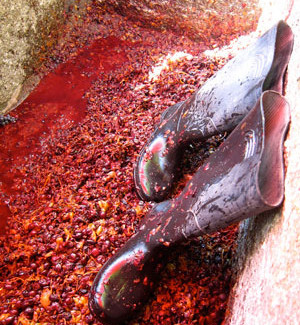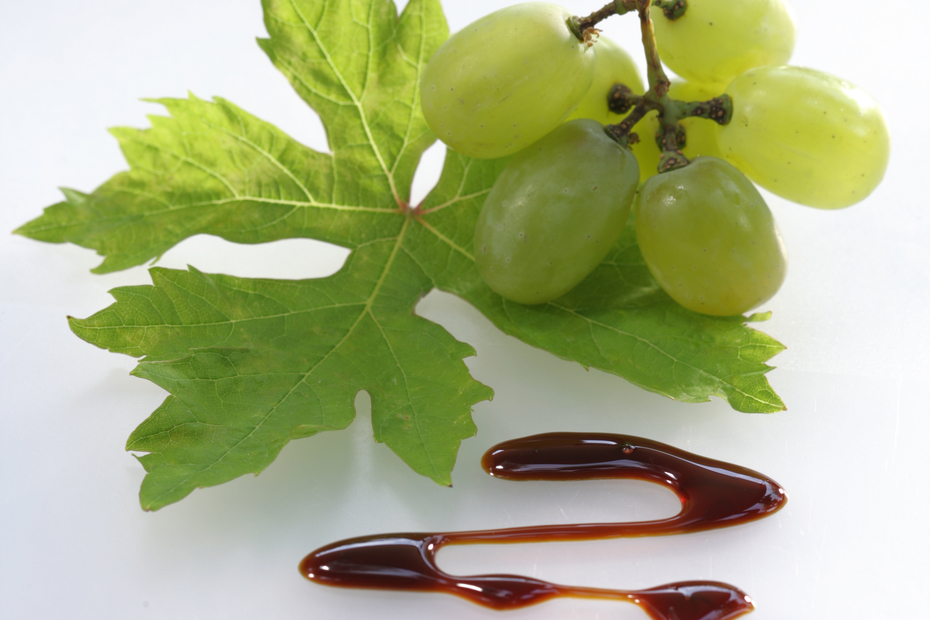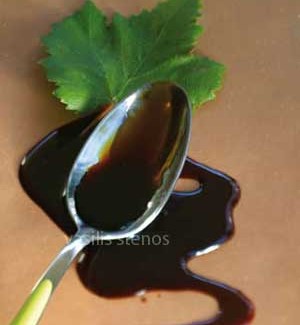Ikaria Longevity Secret: Petimezi, an Ancient, Natural Sweetener

Begleri is the native white variety and makes wines reminiscent of sauvignon blanc and fokiano and koundouro are the two local red varieties.
But for me, wine season is something more, too: it’s also the time of year when mousto, or fresh grape juice (before it starts to ferment for wine making) is in season, and with that its clarified, boiled down cousin, petimezi, sometimes known as grape molasses.
Like honey, petimezi is one of the world’s oldest sweeteners and an exceedingly healthy one at that. It is rich in antioxidants, vitamins A, C, and B, and minerals such as potassium, iron, calcium, and magnesium. Our bodies metabolize the natural sugars in petimezi easily, too.
On Ikaria, petimezi is mostly used in traditional sweets like moustalevria (a pudding made with it) and moustokouloura, cookies sweetened with it. I use it in place of balsamic in salad dressings and marinades, too, and in sauces. I also use it in a range of meat and bean stews, such as my version of Coq au Vin, made with Greek red wine and petimezi. It pairs beautifully with aromatic tomato sauces, warm spices such as cinnamon, cloves, and nutmeg, and even with dark chocolate.
Learn about petimezi, try a delicious chocolate-muffin recipe that calls for it, and take a look at more longevity traditions from amazing Ikaria by ordering my new book: Ikaria:Lessons on Food, Life and Longevity from th Greek Island Where People Forget to Die.







